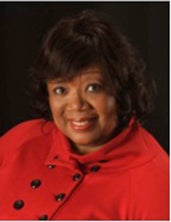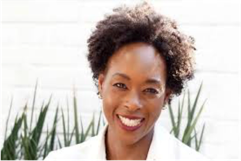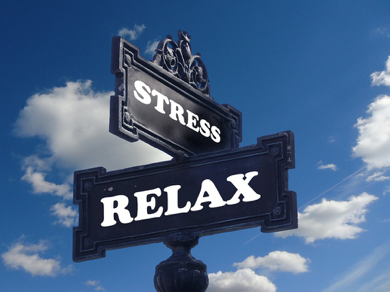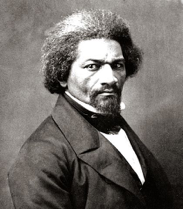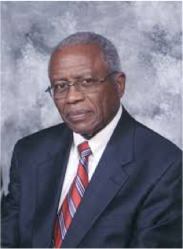President's Message
I loved Viola Davis’s acceptance speech at this year’s Oscars.® It was heartfelt and full of passion. However, I disagree with one of her conclusions, “We (actors) are the only profession that celebrates what it means to live a life.” I would like to think that my profession, clinical psychology (and other disciplines as well) also celebrates what it means to live a life. In particular, historians account for the lives of individuals and their contributions in the context of their times. This was the purpose behind the famous historian Carter G. Woodson’s creation of Black History Week, which has evolved into African American History Month. A month to celebrate what it means to be a contributor to a society that has not always celebrated your life because of your social status.
When theater artists join with historians to share a narrative that allows the viewer to experience and celebrate the life depicted, it is powerfully encouraging. Daniel Day Lewis’s depiction of Lincoln and Paul Giamatti’s portrayal of Adams are two performances that bring history to life while inspiring us to do better. Unfortunately, the previous focus has been on white male figures, to the exclusion of women and other racial and ethnic groups. However, we now have Taraji P. Henson’s depiction of Katherine Johnson in the movie Hidden Figures. The researcher and author of the book Hidden Figures, Margot Shetterly, spoke on the CWRU campus in February about revealing Katherine Johnson’s contribution to the NASA program (see below). Johnson’s career spanned 30 years as a mathematician at Langley Research Center and, along with many other women, she played an unseen but pivotal role in the country’s space missions. That she was an African American woman working in a nearly all- white male workforce made her career seem both implausible and remarkable. While on campus, Shetterly spoke of the intersection of racism and sexism as reasons for why this story had not been told sooner.
The inspiration taken from the book and movie has been tremendous. Hidden Figures is just what Carter G. Woodson had in mind - reach back to find those historical figures who made a difference to America, tell their stories and inspire others to do better. After leaving the movie, I remembered an experience from high school... I was one of five girls who took physics in our senior year. We were the first girls in the history of the school to take the class, and the boys hated that we “took over their class.” The attitude of the boys and the teacher reinforced that it was not okay to be a smart girl, and it was really not okay to be a smart African American girl. As I was leaving the theater, I couldn’t help but ponder, what if I had known of Katherine Johnson and her cohorts in 1974? How different would my choices have been? Yes, we definitely need African American History and Women’s History Months.
—Linda Sharpe-Taylor, PhD (WRC '78)
Hidden Figures Author at Convocation
Margot Lee Shetterly, writer, researcher and author of the best seller Hidden Figures, addressed a record-breaking crowd at the Martin Luther King Jr. Convocation in Tinkham Veale University Center on February 3, 2017. Dr. Julian Earles, retired director of NASA’s Glenn Research Center, and students from six area middle and high schools were among the appreciative guests in the audience.
In the book Hidden Figures, Shetterly tells the stories of four women at Langley Research Center in Hampton, Virginia, who altered the course of American history at a time when blacks were segregated “from the schoolyard to the graveyard.” Christine Darden, Mary Jackson, Katherine Johnson and Dorothy Vaughn were four of roughly a thousand female mathematicians who were the aeronautical ground troops from World War II through the Cold War. They took every opportunity to exceed expectations as they struggled to narrow the gap between society’s perception of them and their own ambitions.
Said Shetterly, “Our job is to recognize extraordinary ordinary people like these and tell their stories. I wrote the book that I wanted to read, a triumph of curiosity and imagination over fear.” Hidden Figures reached number one on the New York Times Non-Fiction Best Sellers List and was the basis of a film by the same name, which was nominated for three Oscars.
Have an idea for an article about a timely topic in your profession? Please email it to cwruaaalumni@gmail.com for inclusion in a future newsletter.
Take Good Care
Michele L. Owens, Ph.D. (FSM ‘71)
Have you been feeling stressed lately, more irritable and out of sorts? Perhaps you are not sleeping well, or are feeling generally unsettled. Barring any serious physical, mental or emotional difficulties, you may be wondering what is going on. Well, you are not alone. Mental health clinicians are hearing more and more about how stressed their clients are feeling. In addition to the common stressors that most people experience at some point (work, finances, family, relationships, etc.), many are expressing anxiety about the current political climate, the general state of the world and prospects for the future. In the American Psychological Association’s 2017 Stress in America poll, significant sources of stress that were reported included the current political climate (57%), the future of the nation (66%) and the outcome of the election itself (49%). This is of particular concern to clinicians, since we know that communities of color already face stressors that are specific to our experience as black people in America and that they affect our mental and physical health on a daily basis.
Recent sources of stress include, but also go beyond, the political and geographical boundaries of this country. You may find yourself feeling that the entire world is going off the rails. On the other hand, if you are older, you have seen crazy times and political upheaval before and may find it easier to believe that things will eventually change for the better. If you are younger, you may not share that perspective. Current times pose new and intense challenges that can feel destabilizing and fuel doubt, anger and anxiety.
All of this brings us to a moment in time where we can feel more uncertain, less in control and less able to predict what’s next - a perfect recipe for increased stress and anxiety. So what can we do about all of this? For starters, we know that African Americans have a history of strength, resilience and ingenuity that has taken us through tougher times than these. If we draw on this foundation, it can help us deal with challenges in today’s world and maintain the sense of hope that has carried us this far. Find other practical ways to de-stress here.
The African American Alumni Association Is Now a Group on CWRU Connect!
The Alumni Association of CWRU is pleased to introduce a new set of groups on CWRU Connect, the alumni directory that makes it easier than ever to connect with former classmates and friends. Through this alumni-only site, you can update contact information, set your email preferences, and contact alumni living near you or with similar interests and professions. AAAA CWRU Connect Group members can also post or view events, photos and news pertinent to the group.
Current AAAA members have already been migrated into the AAAA CWRU Connect group. For all others, please register at cwruconnect.case.edu with your username,10-digit constituent ID number and zip code. Your constituent ID can be found on your most recent CWRU alumni newsletter or by contacting The Alumni Association at 216.368.6280 or alumnirelations@case.edu. After registering, please follow these steps to join AAAA CWRU Connect:
• Find the "Group Pages" tile and select that item.
• Under "Groups," select "Groups Home.”
• There will be a search box on top.
• Type in "African American Alumni Association" and hit “search."
• Select the name of the group.
• Select the option to "Join Group.”
Alumni Career Network
Do you love what you do? Would you like to share your insight and experience with students seeking knowledge about your professional field?
By volunteering to serve as a career mentor in the Alumni Career Network, you can be a resource to students interested in learning more about your career. Whether you're an experienced professional or a relatively recent graduate, you'll find this volunteer opportunity an easy and rewarding way to give back to CWRU.
Alumni Association Awards
Nominations are now being accepted for The Alumni Association Awards. Those received before May 30, 2017, will be reviewed by the recognition committee for 2017 Awards. Winners will be notified in July and awards will be presented at the Homecoming Luncheon on October 6, 2017.
For more information or to complete a nomination, visit The Alumni Association Awards official page.
Commencement speakers, then and now
Former slave and nationally known abolitionist Frederick Douglass delivered the commencement address at Western Reserve University College in 1854, according to the CWRU Institute for the Study of the University in Society and a recent Akron Beacon Journal newspaper article.
At the time of the speech, the college was located in Hudson, Ohio. Douglass was thirty-six years old; sixteen years earlier he had been a slave. In part, Douglass told the audience, "the relation subsisting between the white and black people of this country is the vital question of the age. In the solution of this question, the scholars of America will have to take an important and controlling part. This is the moral battlefield to which their country and their God now call them." He continued, "Here, a man must be hot or be accounted cold. … The lukewarm and the cowardly will be rejected by earnest men on either side of the controversy."
Douglass concluded his address by saying, “whether it shall be ours to witness the fulfillment of our hopes, the end of American slavery or not, we shall have the tranquil satisfaction of having faithfully adhered to eternal principles of rectitude and may lay down life in the triumphant faith that those principles will ultimately prevail.”
One hundred years later in 1954, activist Fred D. Gray, earned his law degree from the same university and became entrenched in the same moral battlefield referenced by Douglass, though civil rights had replaced slavery as the question. Gray was on a mission, as he describes it, “ to destroy everything segregated that I could find.” As a freshly minted lawyer, he represented Claudette Colvin and Rosa Parks when they refused to relinquish their bus seats to white passengers. In the 1960’s, he worked with Martin Luther King Jr. on voting rights and school integration and argued before the Supreme Court the unconstitutionality of Tuskegee-based zoning laws that left African Americans out of elections. Additionally, Fred Gray sued the federal government in 1972 on behalf of the hundreds of African American men exploited by the Tuskegee, Alabama, syphilis experiment of the 1930s. He won a multi-million dollar settlement, proper care for his surviving clients and an apology on the government’s behalf from President Bill Clinton.
Still a practicing lawyer at age 86, Fred D. Gray will deliver the commencement address to CWRU graduates at 9:30 a.m. on Sunday, May 21, 2017, in the Veale Convocation, Recreation and Athletic Center. For more information about the event, please visit case.edu/commencement/
Portions of this article were excerpted from OIDEO E-Update and The Daily.
Unity Banquet 2017
The annual Unity Banquet & Scholarship Dinner celebrates the academic accomplishments of underrepresented students and graduating seniors at CWRU. The evening also serves as an opportunity to recognize future students and Case Western Reserve community partners. This year’s keynote speaker is Consuelo Castillo Kickbusch, author, educator and the highest ranking Hispanic woman in the Combat Support Field of the US Army. This year’s event is Friday, April 7 at 7:00 p.m. at Executive Caterers at Landerhaven.
Reach Back-Raise Up
We are in the homestretch of the historic fundraising campaign, Reach Back-Raise Up. Our race to the finish line began with a big bang, as homecoming attendees pledged over $12,000 in gifts, ranging from $100 to $1,000. Additionally, CWRU President Barbara R. Snyder pledged another $5,000 and promised our efforts would get more targeted assistance from the professionals in the university development office. Their help, along with yours, will ensure that we surpass our goal.
As a reminder, the Reach Back-Raise Up Scholarship Fund for African American and minority students is the AAAA’s scholarship campaign. We want to support current and future CWRU African American students by raising $500,000.00 for undergraduate and graduate school scholarships. The full list of scholarships can be found on the Giving Page under designations.
Many of us remember how fortunate we were to receive grants or scholarships, without which it may not have been possible to attend CWRU. Let’s do what we can to ensure the same opportunity for the next generation of students. It’s our turn to reach back and raise up by giving today!
THANK YOU!!!
Mark Smith (WRC ’75)
Donations can also be mailed to:
Case Western Reserve University
10900 Euclid Avenue
Cleveland, Ohio 44106-7035
In Memoriam: Love leaves a memory no one can steal
Helen Carol Covington Hairston (CLC ‘62, GRS ‘67, sociology)
Charleyse Pratt, PhD (GRS ‘83, ‘96, organizational behavior)
Please send notices to alumnirelations@case.edu
Want to see who else is involved with the AAAA? AAAA Membership Roster
What would you like to see highlighted in future newsletters? Have news to share? Know someone who wants to receive AAAA communications? Contact us at alumnirelations@case.edu.
Remember to visit our webpage and to like our Facebook page, facebook.com/CWRUAAAA.


